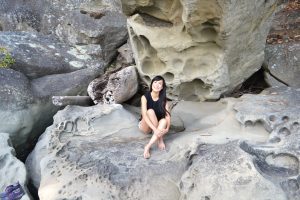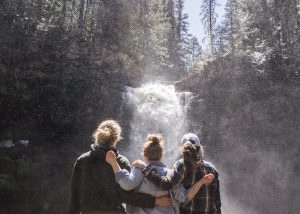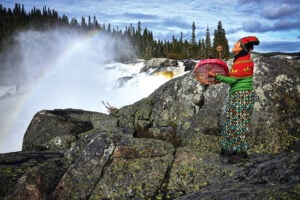Relationships have their ups and downs. Sometimes they get stale, especially when one party begins to take the other for granted. If respect isn’t reciprocal, the relationship runs the risk of morphing into a marriage of convenience, which doesn’t bode well for the long haul.
So, how do we define our relationship with nature? Are everyone’s needs being met in the human-nature coupling? We say we appreciate nature — but does that sentiment inform our treatment of it?
These are the questions tackled in “Nature & Me | Relationship status: ‘It’s complicated,’” an ongoing cross-country Nature Talk hosted by Nature Conservancy of Canada. The consensus among the panelists, a group of conservationists and eco-minded experts: our everyday connection to nature isn’t what it used to be.
What happened to our relationship?
“We’ve lost our connection to nature,” says Dan Kraus, senior conservation biologist at the Nature Conservancy of Canada during the discussion in Toronto on Oct. 11. “In the past, we had direct contact with nature. We looked into the eyes of the food we would eat. We got dirt under our fingernails. Today, with 80 per cent of us living in large cities, we’ve lost that connection to nature. There’s been a decoupling of humanity from ecology.”
The results of that decoupling are well-documented: polluted waters, global warming, utter destruction of old growth forests, animal and bird species increasingly at risk.
Kraus speaks about a concept he calls “common ground conservation”: “We need to get back to a place where we can find that common ground with nature. Appreciating how we benefit from our connection to nature, to really understand what it does for us, will hopefully give us the spark we need to rejuvenate our relationship — to treat her better.”
According to panelist Nicole Vadori, head of environment for TD Bank Group, kids today spend 50 per cent less time outdoors than their parents: “Families are losing that connection to nature,” she says. Vadori is the daughter of immigrant parents who grew their own vegetables — though as a child, she was never involved in gardening. “It was only this past summer that I started a small garden and for the first time I felt fully attuned to the life cycles of nature, of planting, of growing something.”
Placing a value on nature: What’s in it for me?
Perhaps our disconnect with nature (and our subsequent ill-treatment of it) would diminish if we truly appreciated the concrete benefits of our relationship. Vadori uses the term “nature capital” to refer to the value provided by natural resources and ecosystems: “It can be measured in terms of economic value, and environmental and social benefit.” She uses the example of trees: “Each year the trees in Toronto remove 1.1 million tonnes of carbon dioxide from the atmosphere, the equivalent of emissions from 700,000 cars.” Vadori estimates that this tree function saves the city $80 billion annually in environmental benefits and cost savings.
Once more with feeling
Harley Rustad, the author of Big Lonely Doug suggests the secret to an improved relationship with nature lies not in changing how we think, but how feel. In his book, Rustad chronicles the story of what became known as “the loneliest tree in Canada,” a 66-metre-tall Douglas fir saved from a clear-cutter’s saw in British Columbia. “That one tree, and the logger who saved it, did more to raise awareness about the cutting of old growth forests on Vancouver Island than any protest, march or barricade. Why? Because the powerful image of that one tree, standing alone in a vast wasteland, was imbued with feelings. People saw not a photo of a tree but of a solitary thing, bereft, threatened, and it made us feel sad. It was by feeling for that tree that we learned so much about the extent of clear-cutting,” he says.
Sandy and Brian Stewart, parents of filmmaker and shark activist Rob Stewart, who died in a diving accident in 2017, echo Rustad’s thoughts on the benefits of changing our perceptions of nature. “Our son worked to save sharks by encouraging people to think differently about them, to feel for their plight. By educating us about the outright slaughter of sharks — and their important role in marine ecology — he garnered worldwide support. As a result, in 2018 the California Legislature protected sharks and other marine wildlife by banning death nets.”
Taking time to re-evaluate our relationship with nature — and understanding what more there is to lose — is key to preserving that connection, says Kraus. “There is no suitable substitute for the sense of wonder of nature.”
Click here for more information on Nature Conservancy of Canada’s cross-country “Nature & Me” talks.




